IN times that have bypassed it, the lingering semi-arbitrary rule relying on ad hoc decisions secures some breathing space to prolong itself, but it creates frequent political shake-ups which retard socio-economic development.
For resolving complex, intricate and deep-seated problems, it is not powerful individuals but appropriate corresponding institutions that matter the most.
The situation is made worse by institutional frictions and extractive economic policies that tend, over time, to weaken rather than strengthen the writ of the centralised authority. U-turns in policymaking have put to the test PTI’s “visionary” leadership.
One can get a glimpse of what arbitrary decisions do by looking at regressive features of the taxation regime which discourage voluntary tax compliance. For example, according to a recent World Bank report, the introduction of withholding tax on banking transactions in the 2015-16 fiscal year led to a decline in deposits, bringing the commercial banks’ currency-to-deposit ratio from 29 per cent in 2015-16 to 40pc in January this year.
The World Bank document, which deals with risks in the project funded by it to help raise taxes, says that the withholding regime is also problematic as it places the administrative burden on businesses because they are obliged to withhold GST and income tax. This “distorts economic actors’ incentives”. It further notes that “the withholding of income tax also contradicts other policy objectives, notably expanding the formal economy and strengthening the financial system.”
The current real tax revenue growth rate is not enough to help achieve robust macroeconomic stability and return to the cyclic phase of high economic growth
Commenting on the state of the country’s premier tax authority, World Bank’s experts express the fear that “internal tension and wariness of change among Federal Board of Revenue staff” may affect FBR’s performance.
As the World Bank data shows, the intermediary role of banks between depositors and borrowers is weakening as a result of the regressive withholding regime which contributes the bulk of the direct tax revenue raised through indirect tax collection mode.
Instead, the banks’ performance is shored up by a cash-strapped government offering increasing opportunity for banks to invest in their own papers at high interest rates. And the banks remain shy of providing credit to under-served sectors which could help document the informal economy.
Recent events show that the PTI’s current aggressive revenue-oriented drive has hurt the sentiments of a large segment of the business community and provoked countrywide protests by traders. It is seen by many as unjustified and counterproductive in a receding economic growth.
Then taxpayers’ money is not prudently spent, and a substantial part of it is lost in corruption, inefficiency and waste. Only a small portion of tax money is spent on essentials of life — transport, potable water, required standard of education and health facilities, and job creation.
The inadequate and poor state of physical infrastructure raises expenses on the transportation of merchandise and, coupled with the provision of utilities to trade and industry at prohibitive costs, makes export goods uncompetitive in international markets. Export subsidies widen fiscal deficits that fuel inflation.
The inequities in the tax regime also discourage voluntary tax compliance. The landed aristocracy benefitting largely from incentives given to farmers pays a paltry sum of money as income tax. The government succumbs to the pressures from vested interest lobbies for unjustified tax exemptions.
By adopting social democracy focused on public welfare, Scandinavian countries have demonstrated how voluntary tax compliance can be encouraged and nurtured.
In Pakistan, the 1973 Constitution envisages a participatory federal, democratic and egalitarian system whose evolution from time to time has been hampered by those who had little understanding of its significance in shaping stable political and macro-economic conditions.
Like its predecessor, Imran Khan’s government does not seem to be interested in updating the 7th National Finance Commission award operating for the last almost ten years when the Constitution envisages periodical review of awards every five years.
The only NFC meeting was held when Asad Umar was the finance minister. Now the PTI government plans to hold a meeting of the Council of Common Interests for the first time in December, nearly 15 months after it assumed power.
The World Bank experts see “potential disputes affecting the provinces’ collaboration with the Federal Board of Revenue” and the “duplication of jurisdiction” as risks in boosting tax revenues.
It may be pointed out that the FBR continues to duplicate functions of the provincial tax authorities in respect of various taxes and levies transferred to the federating units under the 18th Constitutional Amendment. Among other risks in boosting revenues listed in the World Bank report are judicial interventions, loopholes for tax evasion, and macroeconomic situation.
Given the above background, one can look at the PTI government’s performance in making a strenuous effort to raise tax revenues. In the first five months (July to November) of the current fiscal year, the provisional tax collection amounted to Rs1.618 trillion, short of Rs212 billion compared to the target of Rs1.830tr.
With the tax filing deadline extended up to Dec 16, officials expect to collect a few more billion. November’s provisional revenue grew by 17pc to Rs334bn compared with the same month of last fiscal year, but the sales tax collection was jacked up by withholding sales tax refund claims of exporters.
Dwelling on the negative factors in raising revenues, the World Bank report also points out the FBR’s unorthodox collection practices, e.g. the demand for advance tax payments, in case of a deteriorating macroeconomic situation.
The current real tax revenue growth rate is not enough to help achieve robust macroeconomic stability and return to the cyclic phase of high economic growth. To reduce the gap between revenue and expenditure, the bulging, clumsy government administration should shed all its fat and turn into a lean, thin and agile outfit.
In the changing socio-economic environment, the core problem is that rights and responsibilities are not widely dispersed. With a happy blend of a participatory mode, unfettered representative democracy in which the executive does not control the legislature can be made to work for rapid social and economic progress. n
Published in Dawn, The Business and Finance Weekly, December 9th, 2019


















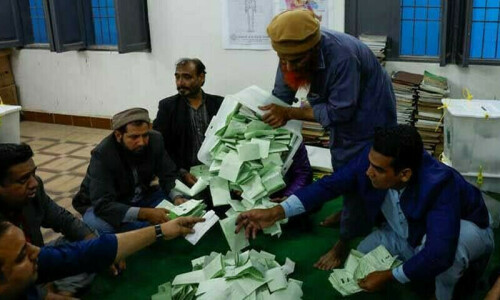
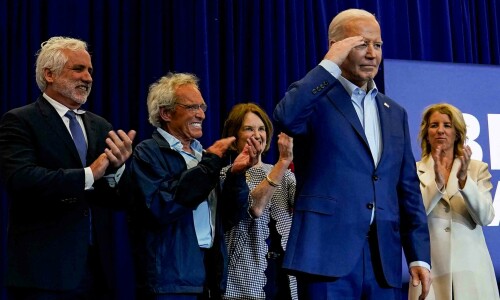







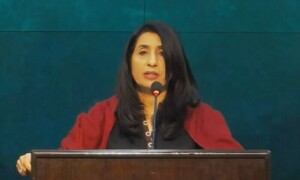


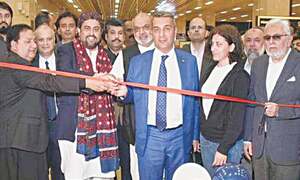


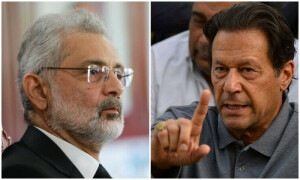













Dear visitor, the comments section is undergoing an overhaul and will return soon.